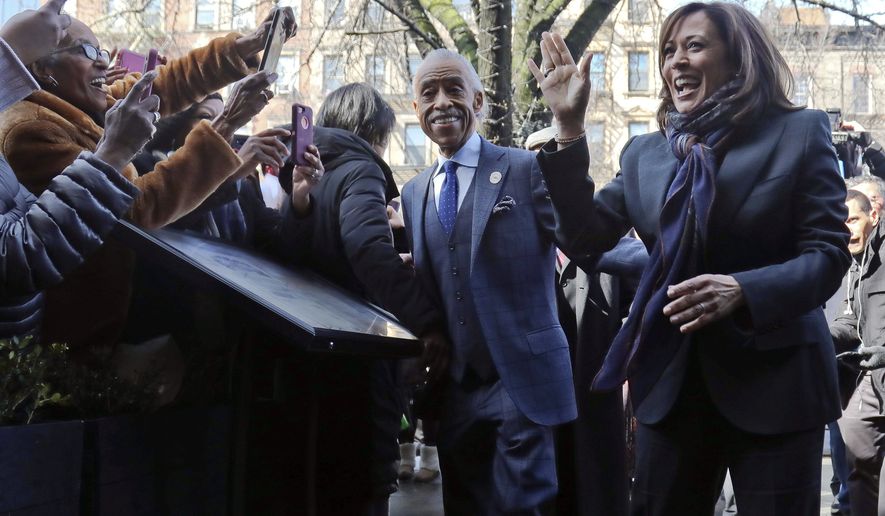OPINION:
Sens. Kamala Harris and Elizabeth Warren reportedly said they support the idea of paying back black Americans for slavery — of reparations — and that this country is going to have a hard time achieving racial equality without taking this step.
Warning: Divisiveness alert.
When politicians like Harris and Warren talk reparations to blacks, what they’re really saying is that white America, all of white America, is inherently racist. And reparations — the paying of trillions of taxpayer dollars to families affected by slavery — are a way to both remind and punish the racist white race for its inherent racism.
This is not uniting language. This is not language that furthers truth.
This is language that tears apart.
And it’s being sold as a greater good type of deal by politicians who are simply looking for a hook to grab media coverage and votes.
“We have to be honest that people in this country do not start from the same place or have access to the same opportunities,” Harris said in a statement to The New York Times about a radio show remark she made in support of legislation that addresses slavery and discrimination in America.
And what’s more: People never will start from the same clean slate called life. It’s impossible; people are different. They come from seeds of difference planted at conception, actually. No amount of government money will change that.
Harris went on: “I’m serious about taking an approach that would change policies and structure and make real investments in black communities.”
As for Warren, she said similarly.
“We must confront the dark history of slavery and government-sanctioned discrimination in this country that has had many consequences, including undermining the ability of black families to build wealth in America for generations,” Warren said to The New York Times, as reported by Fox News. “We need systemic, structural changes to address that.”
Well, guess what: We’ve had them.
Not only is slavery illegal. But so is discrimination based on skin color — and on a host of other traits, like sex and religious preference and, in some jurisdictions, even sexual preference. America is truly a nation of equal opportunity — one only has to take it and take action.
Individual initiative really works.
Let’s be clear: The slavery that blackens this country’s formative years is a taint, an abhorrent truth. All slavery is evil; all slavery ought to be abolished and wiped from the face of the earth.
But to say that today’s America is the same as the America of slave years is utter nonsense and an egregious face-slap to reality. And these politicians have to know this.
Harris is a black woman running for the presidency of the United States; America’s last president of the United States was a black man. Blacks have served in about every high-ranking public and private office this country has to offer; the opportunities for minorities are available to the same degree they’re available for any other race.
Our Constitution, as those who play race politics like to claim, is not discriminatory. It’s freeing.
And using skin color to ratchet a political campaign seems a thin and sorry excuse for a political campaign.
What’s next, reparations for women who were denied the vote even longer than blacks?
America’s supposed to be a melting pot. Let’s act like it. The way past racism is not to divide further, but to combat angry rhetoric with truths — to return to teaching our upcoming generations that yes, America has some black marks in her background, but those black marks don’t define who we are today.
Those black marks have been long ago covered by constitutional rights, civil rights laws and anti-discrimination regulations — as well as by godly people carrying messages of brotherly and sisterly love for all, no matter the skin tone. Allowing politicians to run their races on platforms of bitterness and deceptive messages would just be a shame and would only lead to a greater divide. Money, reparations’ money, can’t buy truth.
• Cheryl Chumley can be reached at cchumley@washingtontimes.com or on Twitter, @ckchumley.




Please read our comment policy before commenting.